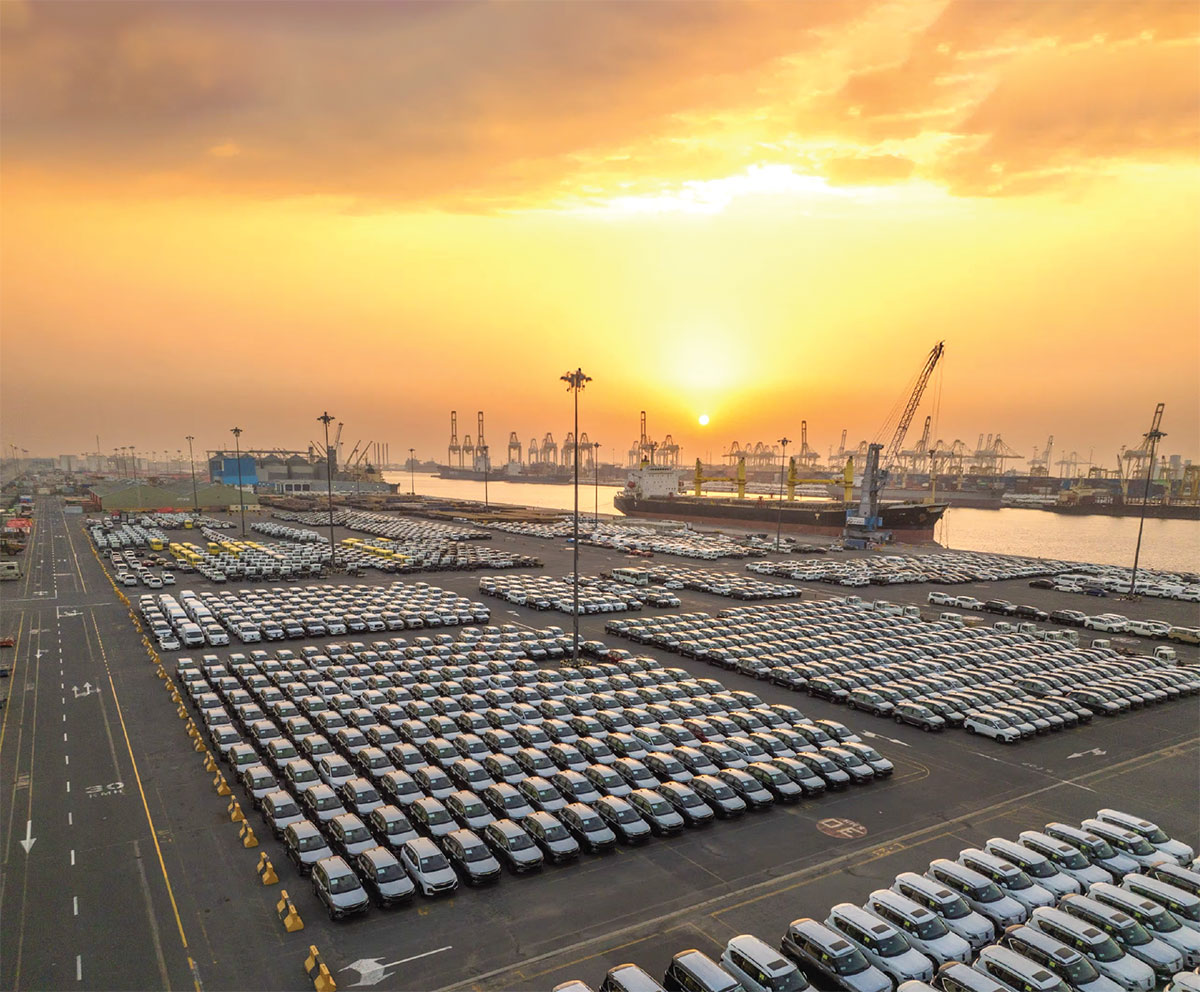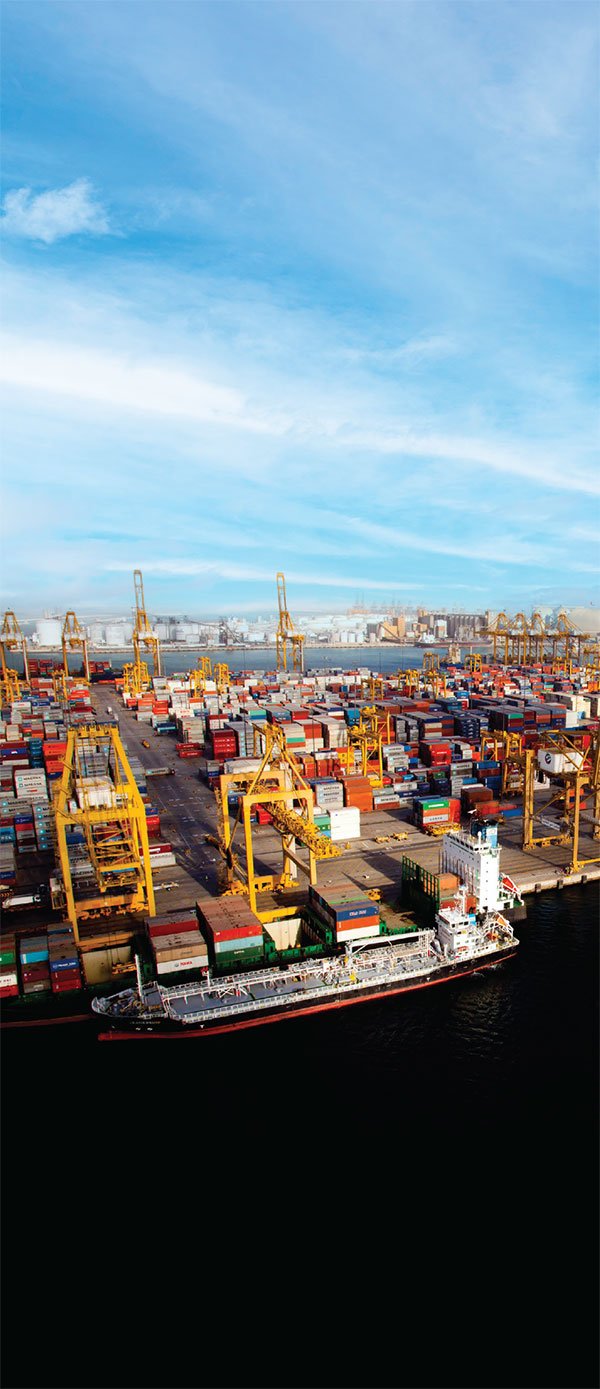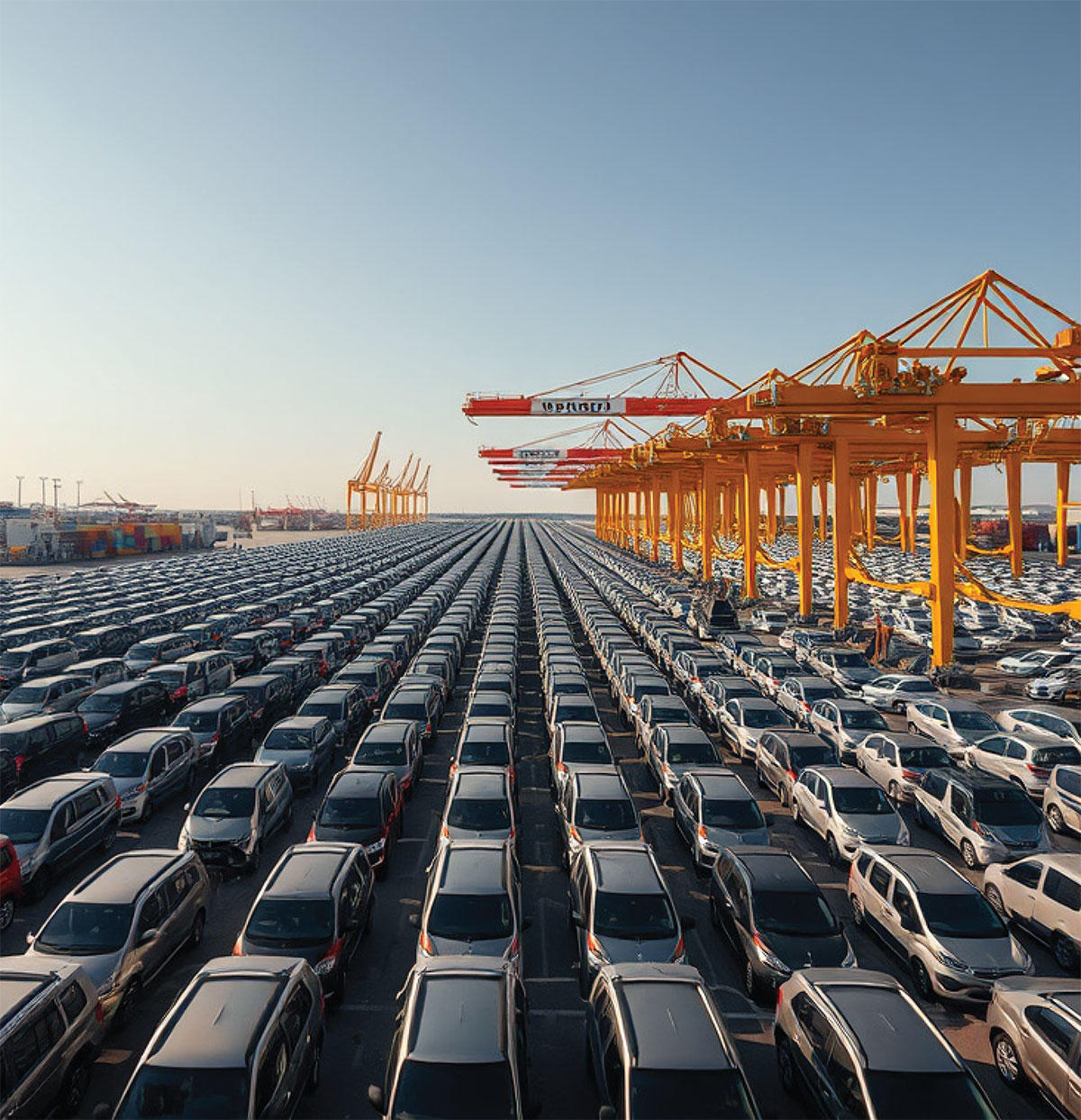
Dubai has reinforced its position as the Middle East’s leading automotive logistics hub with a major capacity upgrade at Jebel Ali Port. DP World has completed the development of a new 2.6 million square foot vehicle storage yard at Terminal 4, increasing the port’s automotive handling capacity by 21% to 75,000 car equivalent units (CEUs).
The expansion adds 13,000 CEUs of storage space and features an 800-metre quay designed to berth up to three roll-on/roll-off (RoRo) vessels simultaneously. By relocating RoRo operations from Terminal 1 to this purpose-built facility, DP World has freed up valuable space for other cargo types, improved berth availability, reduced vessel turnaround times, and streamlined port-wide operations.
Jebel Ali Port’s strategic location already makes it a critical link between manufacturing hubs in Asia, Europe, and the Americas and consumer markets across the Middle East and Africa. The new automotive yard strengthens this role, positioning the port to absorb additional traffic and manage growing demand without operational bottlenecks.
 Responding to Rising Vehicle Volumes
Responding to Rising Vehicle Volumes
The capacity upgrade is a direct response to the surging automotive trade through Dubai. In the first half of 2025 alone, Jebel Ali Port handled 545,000 vehicles — a 28% increase compared to the same period in 2024. Imports accounted for 65% of the total volume, with the largest share originating from China, Japan, Thailand, India, and South Korea.
Relocating RoRo handling to Terminal 4 allows for better consolidation of automotive operations. This shift provides more predictable scheduling for vessel berthing and optimises yard utilisation, ensuring that high volumes can be processed with minimal delays.
The dedicated layout of the new yard also enables DP World to accommodate seasonal peaks and fluctuating demand more efficiently. The design facilitates speeding up unloading, inspection, and transfer of vehicles, contributing to shorter lead times. By separating automotive flows from other cargo types, the port can maintain high throughput without compromising service levels in different segments.
Designed for Efficiency and Future Growth
The Terminal 4 facility is purpose-built for automotive logistics, integrating high-capacity storage areas with direct quay access to reduce internal transfer times. The yard’s configuration supports large-scale storage while enabling smooth circulation of vehicles for pre-delivery inspections, modifications, and value-added processing.
Advanced tracking systems offer end-to-end visibility, enabling manufacturers, dealers, and logistics providers to monitor shipments in real-time. These capabilities align with just-in-time supply chain models, where speed and precision are critical to meeting market demand.
Additionally, the increased capacity can accommodate projected increases in vehicle volumes driven by population growth, rising consumer demand, and the expansion of automotive manufacturing in Asia. This positions Jebel Ali Port to capture new trade flows and maintain its competitive edge against other regional ports. By consolidating automotive operations at a single, highly efficient terminal, DP World has created an optimised environment for RoRo cargo. It enables faster vessel turnaround, reduces congestion, lowers costs, and improves market responsiveness.
 Strategic Role in Dubai’s Automotive Vision
Strategic Role in Dubai’s Automotive Vision
The Terminal 4 expansion forms part of a broader automotive strategy that includes developing a 20 million square foot advanced car market in Dubai, set to be the largest in the world. This initiative will centralise showrooms, auctions, and logistics services into a single, integrated hub.
Both projects directly support the Dubai Economic Agenda D33, which aims to double the emirate’s economy by 2033 and strengthen its position as a global logistics leader. With increased capacity, optimised operations, and future-ready infrastructure, Jebel Ali Port is positioned to meet growing vehicle demand and expand trade links. This will reinforce Dubai’s role as a critical automotive gateway for the Middle East, Africa, and beyond.